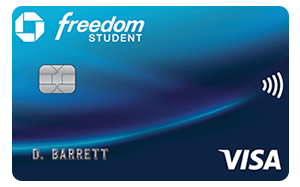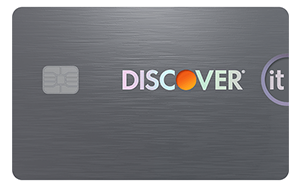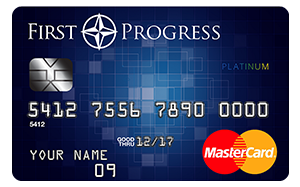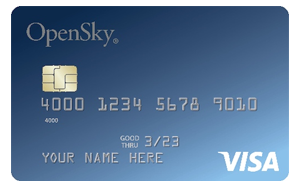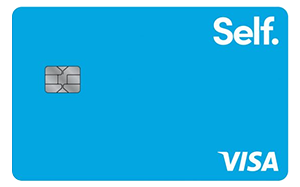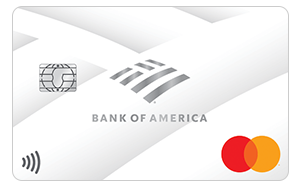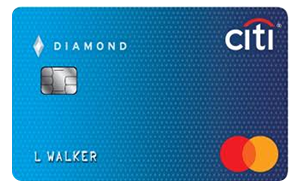Building credit is an important part of adulthood. Your credit score affects your ability to get a credit card, borrow money, and even get a job and rent an apartment.
Although your parents could’ve helped you build credit as a teenager or even establish credit at 17, building credit as an independent adult requires opening a credit account, such as a credit card or loan. However, there’s a problem: it can be very hard to qualify for a loan or credit card if you just turned 18 and have never had a credit card before. In other words, you need credit to get credit.
To get you past this hurdle, here are 7 steps you can take to start building credit when you’re 18.
Table of Contents
7 ways to start building credit at 18
To get your credit off on the right foot, follow these steps:
1. Understand the basics of credit scores and reports
When you turn 18 and start looking into building credit for the first time, the first step is to make sure you understand what credit is and how credit works.
There are two key terms to understand:
- Credit score: When people talk about “building credit,” they usually mean “building your credit score.” This is a three-digit number that represents your creditworthiness, and it can range from the lowest possible score of 300 to the highest possible score of 850. Lenders look at this number when deciding whether or not to approve you for credit.
- Credit report: A credit report is a summary of your credit history. Your credit score is generated from the information on your credit report.
How your credit score is calculated
When you get a new credit account (such as a loan or credit card), your lender will report your activity on the account to the three nationwide credit bureaus (Equifax, Experian, and TransUnion). They’ll add it to your credit report, and it will start affecting your credit score.
There’s no universal starting credit score, and you don’t automatically get your first credit score at 18. Instead, you’ll get your first credit score at whatever age you start building credit. This score will be based on the credit accounts you’ve opened and the other information shown in your credit reports.
2. Become an authorized user on someone else’s card
Remember the credit-building catch-22: you need credit to get credit. If you just turned 18, you’re probably struggling with this dilemma of building credit when you have none.
To get around it, you can ask someone to add you as an authorized user on their credit card. In your case, it probably makes the most sense to ask your parent or guardian, although you can also ask another family member or trusted friend as well.
As an authorized user, you’ll get your own account number and a credit card with access to the primary cardholder’s line of credit. More importantly, many lenders will report the primary user’s account history on your own credit report (check with your lender to make sure they do this).
If the primary user has a good credit history, being an authorized user will boost your credit score as well. Just make sure that you choose someone who uses their credit card responsibly.
3. Get a secured credit card
Once you turn 18, you’re officially old enough to get a credit card. Secured credit cards are a good option for credit cards to build credit, because they’re designed for young people who are just starting out (or others with bad credit). Unlike unsecured credit cards, they require a security deposit that your card issuer can keep if you fail to pay your bills on time.
This makes secured credit cards easy to get since they pose less risk to lenders. In fact, some require no credit check at all. However, before applying, make sure you understand what other requirements (e.g., income or job requirements) you need to meet to get a credit card at 18.
How to choose a credit card at 18
When choosing a secured credit card (or other types of beginner or student credit cards), shop around until you find one with a relatively low interest rate. Here are some good places to start:
Credit Card
Best For
Credit Score
Annual Fee
Welcome Bonus
No Credit
300–669
$0
Rewards
580–739
$0
Cashback match
Travel
580–739
$0
Visa
580–739
$0
$50 Bonus
International Students
580–739
$0
Credit Card
Best For
Credit Score
Annual Fee
Welcome Bonus
Secured
300–669
$0
Cashback Match
Unsecured (No Deposit)
300–669
$39 ($0 for the first year if you set up autopay)
Beginners
300–669
$49
Students
580–739
$0
Cashback match
No Annual Fee
300–669
$0
High Approval Odds
300–669
$35
Building Credit
300–669
$0
Credit Card
Best For
Credit Score
Annual Fee
Welcome Bonus
No Credit Overall
300–669
$0
Cashback Match
Starters
300–669
$49
Students
580–739
$0
Cashback match
No Credit Check
300–669
$35
No Annual Fee
300–669
$0
Unsecured (No Deposit)
300–669
$75 for the first year ($48 after)
High Credit Limit
300–669
$39 ($0 for the first year if you set up autopay)
Instant Approval
300–669
$75–$99 the first year, then $99 annually
Beginners
300–669
$0
Credit Card
Best For
Credit Score
Annual Fee
Welcome Bonus
Secured Overall
300–669
$0
Cashback Match
No Credit Check
300–669
$35
Beginners
300–669
$25
No Annual Fee
300–669
$0
Bad Credit
300–669
$49
Rebuilding Credit
300–669
$0
If you’re using a credit card to build credit, the most important thing to do is pay off your credit card balance on time each month. Doing so will allow you to avoid paying extra in interest and will establish a good credit history as your creditor reports your payments to the credit bureaus.
4. Get a credit-builder loan
Like secured credit cards, credit-builder loans are designed for people with poor credit or insufficient credit histories. This makes them a great option for your first loan.
You can get a credit builder loan from a credit union, local bank, or online lender. Your lender will deposit the money you borrow into a savings account, which you’ll only have access to after you’ve paid off the loan.
As is the case with other credit accounts, making on-time payments on your credit-builder loan will improve your credit score as your lender reports your credit activity to the credit bureaus. Make sure to choose a loan amount that you can afford so that you avoid making late payments, which will damage your score.
Your school’s financial center might be able to help you find a loan
Not every financial institution offers credit-builder loans. If your college or university has financial advisors you can meet with, they may be able to help you secure one (and might be able to help you establish your finances in other ways, too).
5. Get credit for rent and bill payments
If you’re 18, although you might not have much credit activity to report, there’s a good chance you have subscriptions to streaming services like Netflix, Hulu, HBO, or Disney+.
If you’re paying for those services on your own instead of piggybacking off a family member or friend, you can have those payments added to your Experian credit report using Experian Boost. It will also report your utility payments (if you’re paying for those yourself).
Experian Boost is a free service, and it’s an easy way to build credit without having to get a loan or credit card at all.
Boost your credit for FREE with the bills you're already paying

Boost your credit for FREE with the bills you're already paying
- Experian Credit Report and FICO® Score updated every 30 days on sign in
- Instantly increase your credit scores for FREE with Experian Boost™
- Daily Experian credit monitoring and alerts
If you’re living on your own instead of in a dorm or with your family, you can also build credit just by paying your rent. All you need to do is get your rent payments added to your credit reports by signing up for a paid rent-reporting service, such as:
This is a good approach if you’re someone who’s always on top of their rent and bills. You can also indirectly get credit for your rent payments by paying your rent with a credit card or loan, but this is a riskier approach that has some drawbacks.
6. Repay your student loans on time
It’s not worth taking out a student loan just to build credit, but if you have one already, then it’s a good opportunity. Paying down student loans will improve your credit score in the long term, as long as you make each payment on time.
Note that if you’re 18 and still in school, you might not have actually started paying back your student loans yet. If that’s the case, the above obviously doesn’t apply, but your student loans can still affect your credit score in limited ways. For instance, taking out a loan this early in life will contribute to the length of your credit history, which will improve your score for years to come.
7. Establish good credit habits for the future
Building credit at any stage is a long process. Beginning at 18 will get you off to a great start, but you’ll need to maintain good habits to demonstrate your reliability as a borrower over time.
When you use your credit in the future, do the following:
- Make on-time payments: Your payment history is the most important factor contributing to your credit score, so above all, pay your bills on time. Try setting up autopay or digital reminders, and contact your creditor as soon as possible if you’re worried you’ll miss a payment due to financial difficulties. They may offer alternative repayment options or a temporary pause on payments.
- Keep your credit utilization rate low: The credit scoring models reward consumers who maintain a low debt-to-credit ratio, which is the amount of your credit you’re using. A good rule of thumb is to never use more than 30% of your available credit, although using under 10% is ideal. 1
- Avoid opening too many new accounts: As mentioned above, the length of your credit history—measured by the average age of your accounts—is an important component of your credit score. Keep your accounts open and only apply for new credit when you actually need it to keep your average credit age high.
At 18, you should also start thinking about ways to continue building and improving your credit in the years to come. The resources below can help you keep up your momentum and overcome the setbacks that come with being new to credit:
- How to build credit at 19
- How to build credit at 20 (and throughout your 20s)
- How to get an apartment with no credit
How long will it take to get a credit score?
If you follow all the tips above, it will take a few months for you to get your first credit score.
FICO and VantageScore will generate a score for you when you meet their minimum scoring criteria:
- FICO: Your credit report needs to show that you’ve had at least one line of credit for six months or longer. 2
- VantageScore: You need to have at least one credit account, and it only needs to be one month old. 3
Until then, you’ll be considered “unscorable” or “credit invisible,” and your borrowing options will be very limited (although you might still be able to get a secured credit card).
Being credit invisible isn’t the same as having a bad score
If you’re 18 and have never used credit, your score isn’t 0 or even 300 (the minimum credit score in every widely used model). Having no credit history means you’ll have no score at all. You’ll only get a bad credit score if you manage your credit irresponsibly.
What will my credit score be at 18?
Although you might expect your first credit score to start around the minimum (300), it probably won’t be that low. It also won’t start at the highest possible score (850).
If you follow the tips above, you can expect your first credit score to be in the 600s or 700s, which are considered fair to good credit scores.
For reference, the national average credit score for Generation Z (18 to 23 years old) is 674. 4
Your age isn’t factored into your credit score, and you can achieve a good score early on by making smart financial choices.
How to check your credit score for the first time
If you’re 18 and curious to see what your credit score is (or whether you have one at all), there are a few ways to check:
- You can find out your credit score by signing up for a credit monitoring service. All three of the credit bureaus offer credit monitoring.
- Once per year, you can get free copies of your credit reports from each bureau (which will also show your score) by visiting AnnualCreditReport.com.
- You can get your score directly from FICO and VantageScore, which are the companies that produce the credit scoring models that the bureaus use.
- If you already have a credit account, then your lender may provide you with access to your credit score through their online portal.
Takeaway: You can build credit at 18 by using credit-building tools and managing your accounts responsibly.
- If you don’t have any credit history, then you first need to have a credit account added to your credit report before you can begin building credit.
- To establish good credit, it’s important to learn about how credit works and what factors contribute to your score.
- Good ways to build credit include becoming an authorized user, reporting your rent and bill payments, and getting a secured credit card or credit-builder loan.
- The key to building credit is to practice good credit habits, such as paying all your bills on time and maintaining low balances on your credit card accounts.




